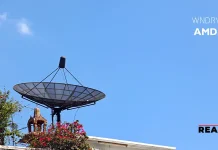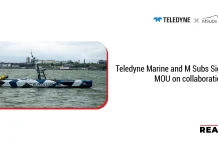In recognition of National Drive Electric Week, Pacific Gas and Electric Company (PG&E) is sharing its progress to advance technology that will enable electric vehicles (EV) to serve as virtual power sources to help offset load growth and deliver a clean energy future. PG&E is also highlighting the resources, programs and incentives the company offers to help make EV ownership more affordable for all customers.
Currently, one in seven electric vehicles in the nation plug into PG&E’s grid, representing approximately 518,000 EVs with a combined battery storage capacity (6 GW) almost three times more than the Diablo Canyon Power Plant’s generation capacity. That battery storage capacity will increase significantly as EV adoption grows in the decades ahead. PG&E is preparing the grid to quickly and safely power at least 3 million EVs by 2030, and is collaborating to pioneer technology that can harness clean energy from solar and wind generation to help power the electric grid and offset a portion of the 70% load growth projected over the next 20 years.
“California is still in the early stages of an exciting energy transformation, and EVs are front and center as we reimagine the energy system for the future. Bi-directional charging technology is available today that gives EV owners the ability to power their homes in the event of an outage or to offset energy use. We are collaborating with automakers and some of the world’s top innovators to test applications that will enable us to harness the power of EV batteries as a grid resource to support peak electricity demand periods and decarbonize the economy at the lowest societal cost. The technology will also enable EVs to play a big role in offsetting some of the load growth associated with California’s path forward to electrification,” said Jason Glickman, PG&E Executive Vice President, Engineering, Planning & Strategy.
Also Read : Southern Power acquires South Cheyenne Solar Facility
PG&E is collaborating with BMW of North America, Ford Motor Company and General Motors to test cutting-edge vehicle-grid-integration (VGI) applications, and is executing the nation’s first large-scale bidirectional charging pilots which are testing multiple value streams to enable a wide range of services and study the cost-effectiveness of VGI. The bidirectional charging pilots offer upfront and ongoing performance-based incentives and provide higher upfront incentives to help reduce the affordability barrier for underserved communities.
“The technology we are building today will play an important role in increasing the amount of greenhouse gas (GHG)-free resources powering the grid by storing clean energy generated during the day to supplement the availability of clean energy during the peak evening demand period and overnight. At some point in the near future, we will have millions of EVs providing power back to the grid to help utilities like ours meet peak electricity demand without the need for non-renewable energy resources,” said Glickman.
Other Ways PG&E is Supporting California’s EV Future
In addition to its VGI work creating a path for EVs to power customer homes and hometowns, PG&E is accelerating equitable EV adoption by:
- Continued prioritization of grid readiness and building grid capacity to accommodate new EV demand through a multiyear grid investment plan.
- Rapidly accelerating EV-enabling technology by partnering to explore and scale low-cost grid and infrastructure solutions, second-life battery programs, and other technologies.
- Partnering with innovators across the entire EV value chain to build the large-scale electric infrastructure needed to incorporate EV charging systems into the grid.
PG&E is also deploying cost-efficient, targeted customer programs to accelerate equitable EV adoption with the aim to:
- Increase access to EV infrastructure, by deploying chargers to support PG&E’s customers and setting aside budgets in programs for underserved communities.
- Reduce the total cost of EV ownership for customers through innovative rate structures, like PG&E’s Electric Home Rate Plan for residential customers.
- Increase EV customer awareness by partnering with community organizations to understand local education needs and tailoring tools and materials to drive EV adoption.
- Seamlessly integrate EVs with the grid, enabling VGI, EV market participation, and grid support.
EV Customer Programs and Incentives
PG&E offers a variety of tools and resources to help educate customers regarding EV ownership. Customers are invited to check out PG&E’s EV Savings Calculator, an online resource to browse vehicles, discover incentives, compare rate plans and locate charging stations. PG&E also offers an EV Checklist to help customers get started on the path to EV ownership.
PG&E encourages customers to check out the current programs offered to help ease the transition to EVs, including:
- The Pre-Owned EV Rebate Program provides qualified residential customers up to $4,000 when purchasing or leasing a pre-owned all-electric or plug-in hybrid vehicle.
- The Empower EV and Multifamily Housing and Small Business EV Charger pilot programs provide no-cost EV charging infrastructure and resources to help address the costs of installing chargers at single-family homes, multifamily housing units, nonprofit organizations and small businesses throughout low- and moderate-income communities in PG&E’s service area.
- PG&E’s EV Fleet Program helps customers with medium- and heavy-duty vehicles in their fleets to install cost-effective charging infrastructure to save money, reduce tailpipe emissions and simplify maintenance.
- Through its EV Fast Charge Program, PG&E is funding and installing infrastructure at qualifying customer sites to support the expansion of publicly available fast charging stations for light-duty vehicles.
- PG&E’s EV Charge Schools Pilot is installing level 2 charging stations at school facilities and educational institutions for staff, parents and students to charge their EVs. PG&E helps fund the costs of purchasing and installing the EV charging equipment and networking fees at participating schools, as well as ongoing maintenance and operations.
SOURCE : PRNewswire






